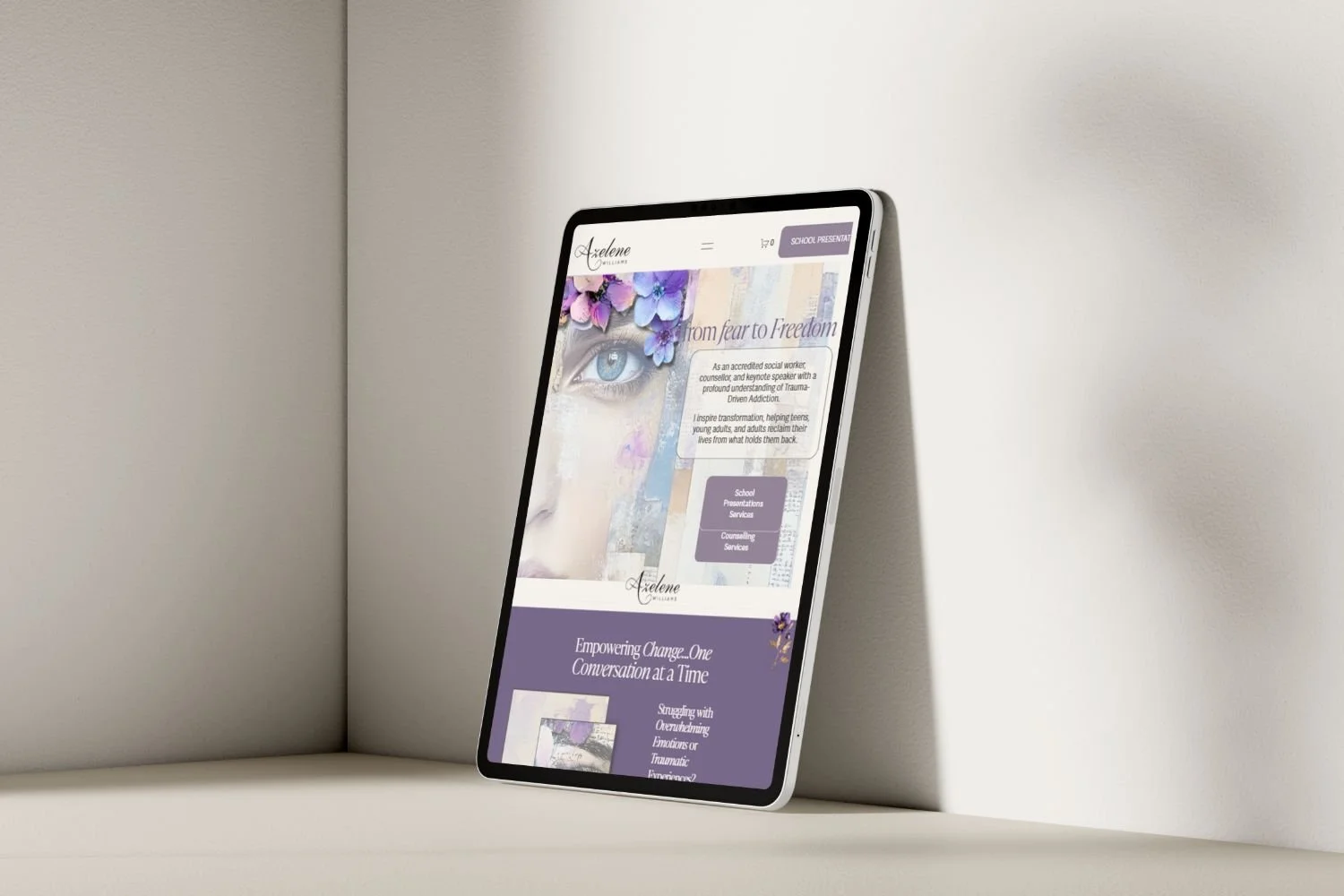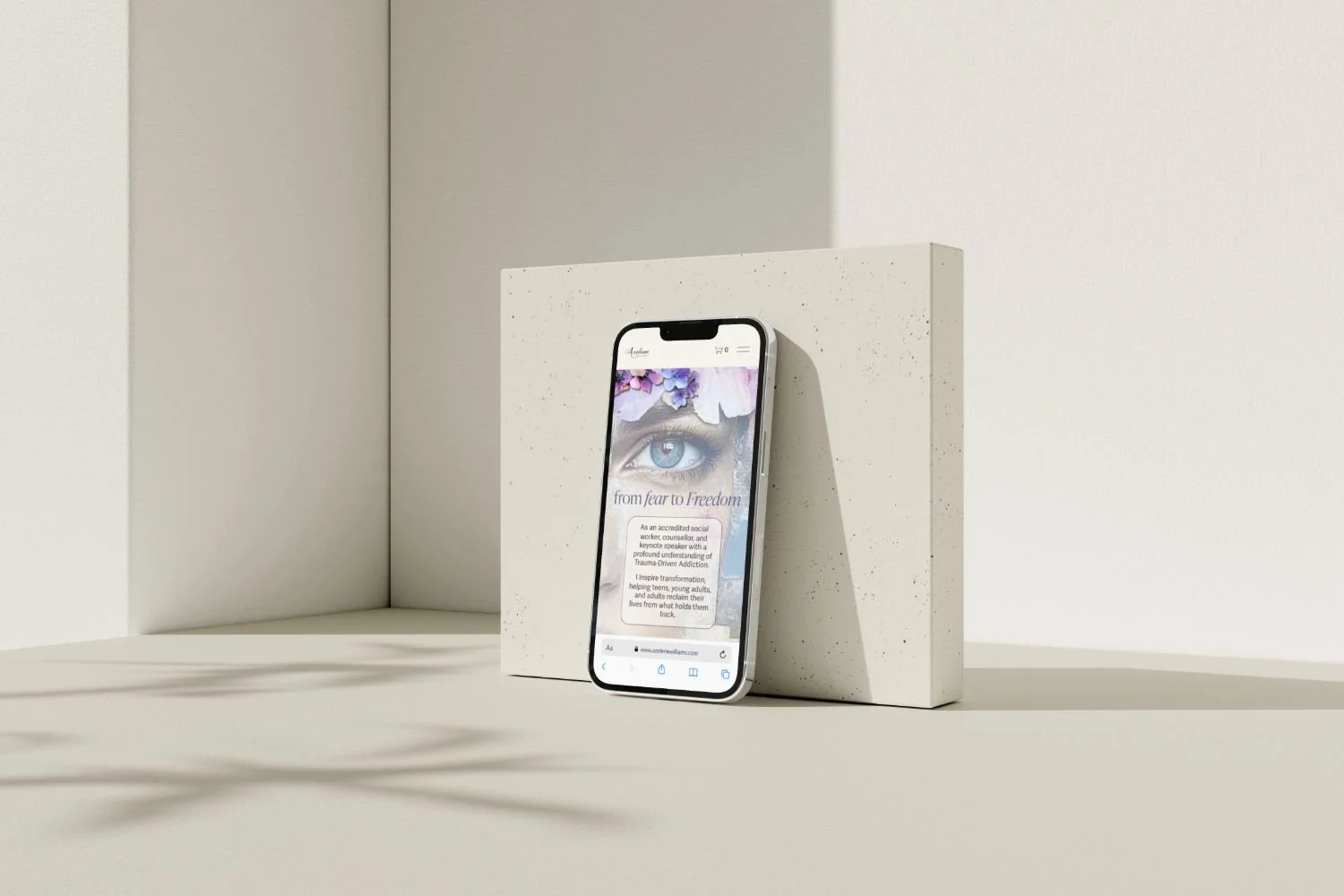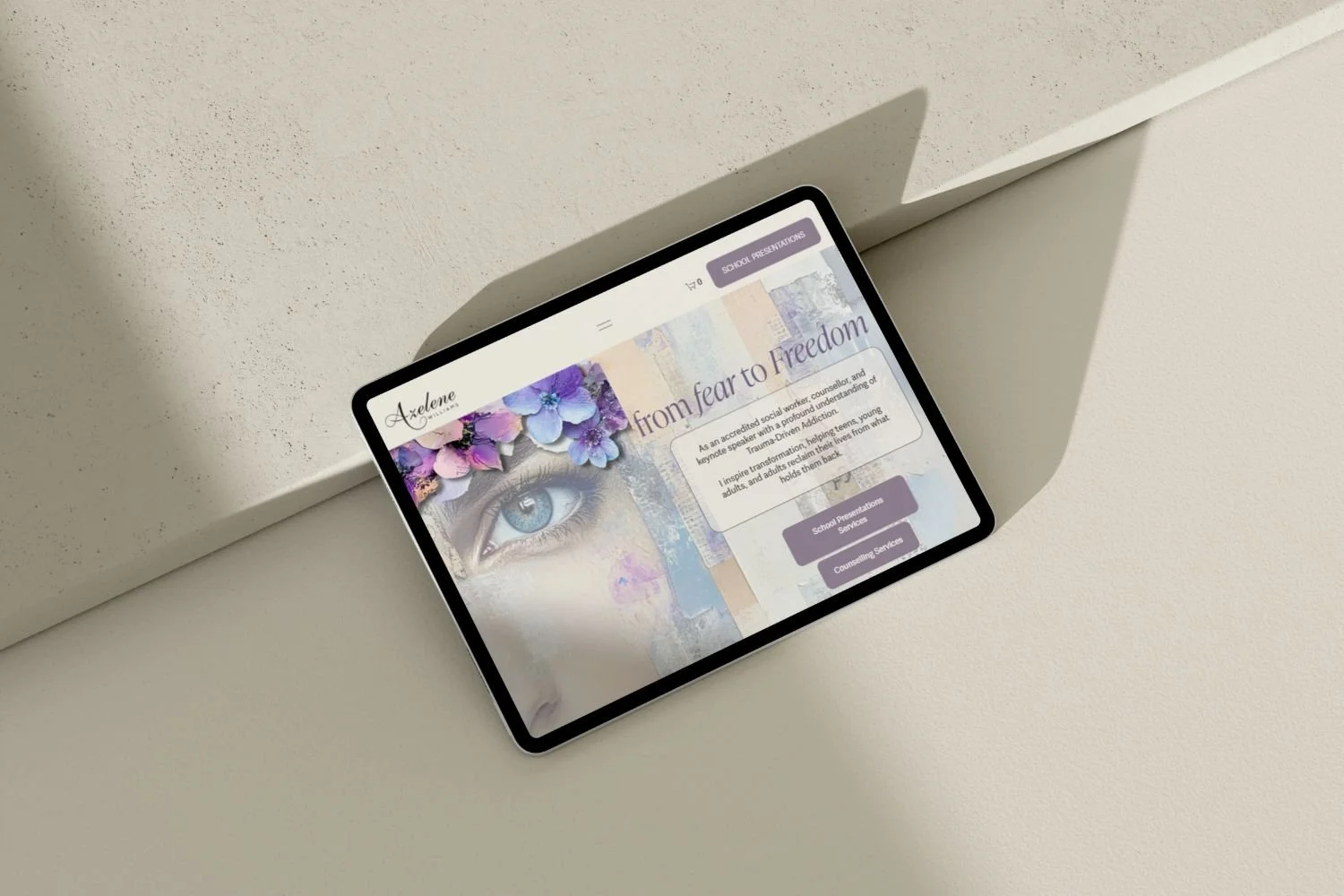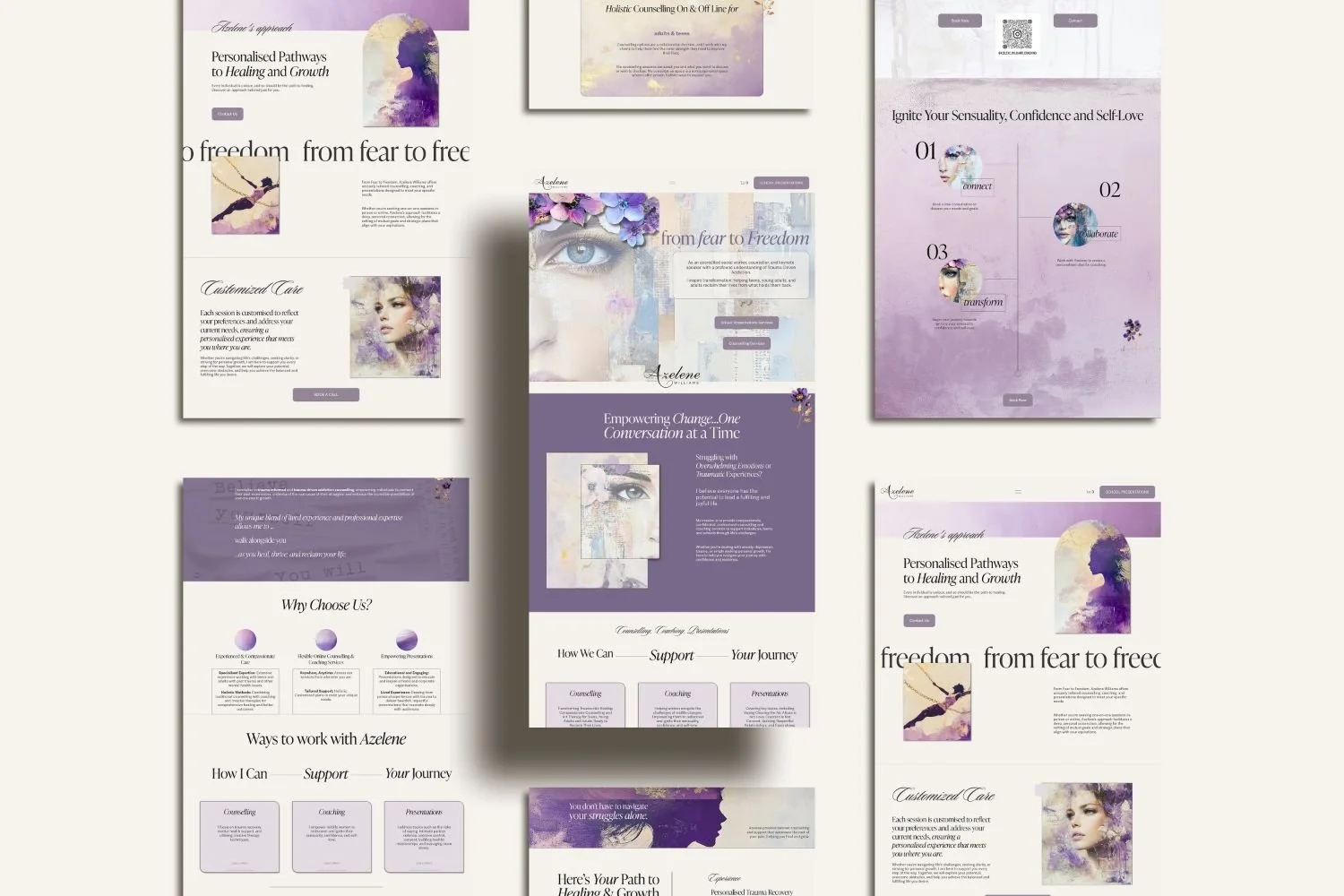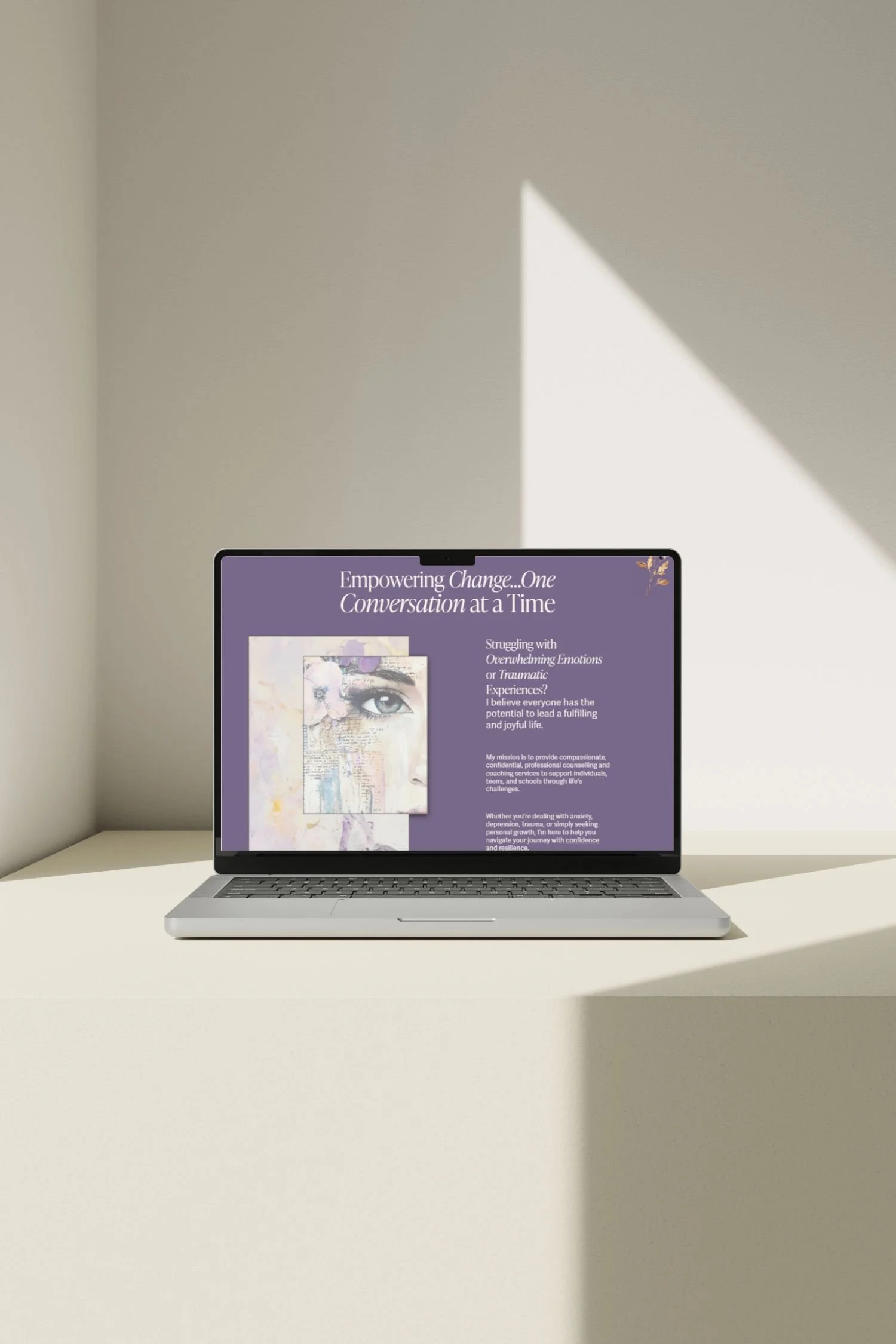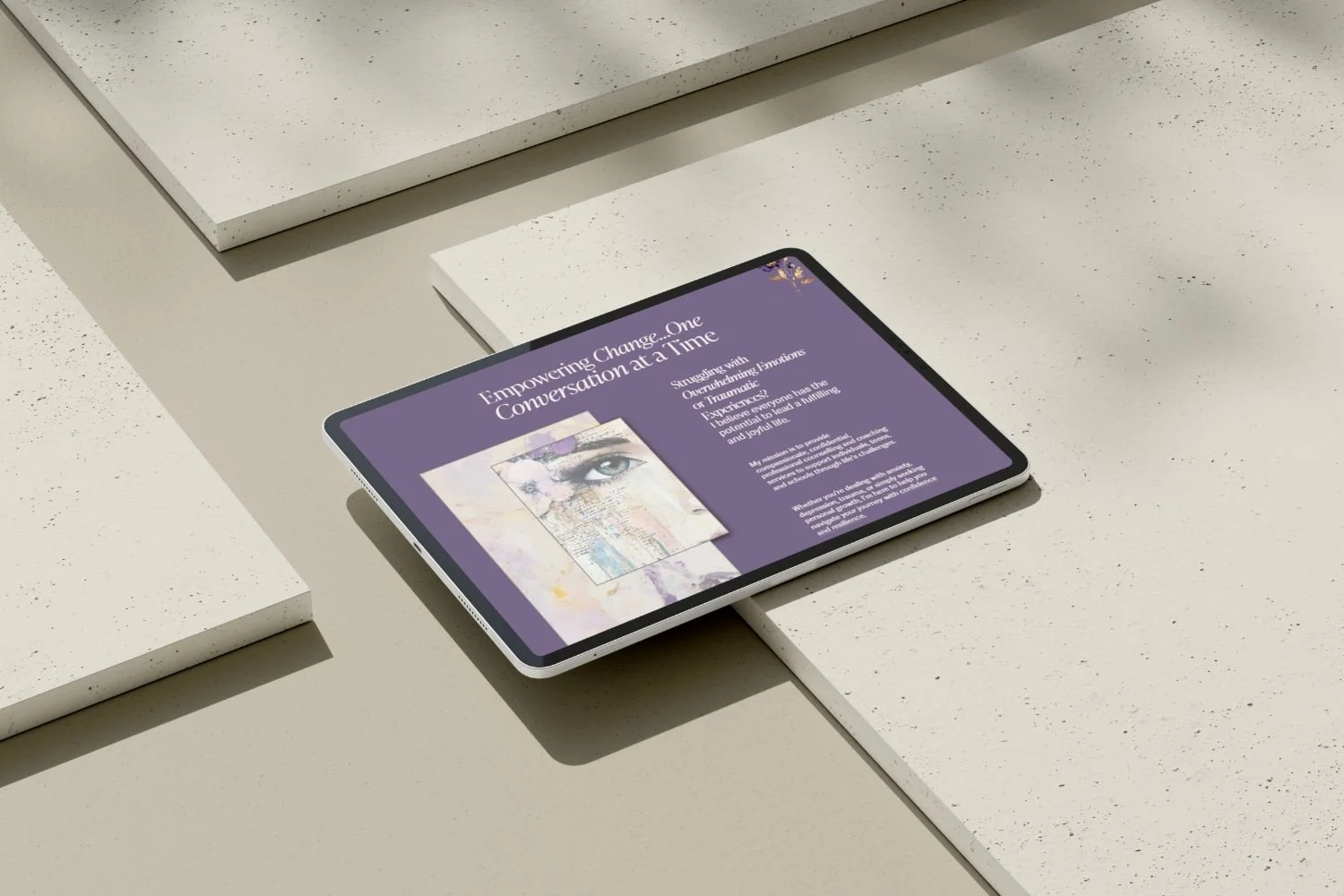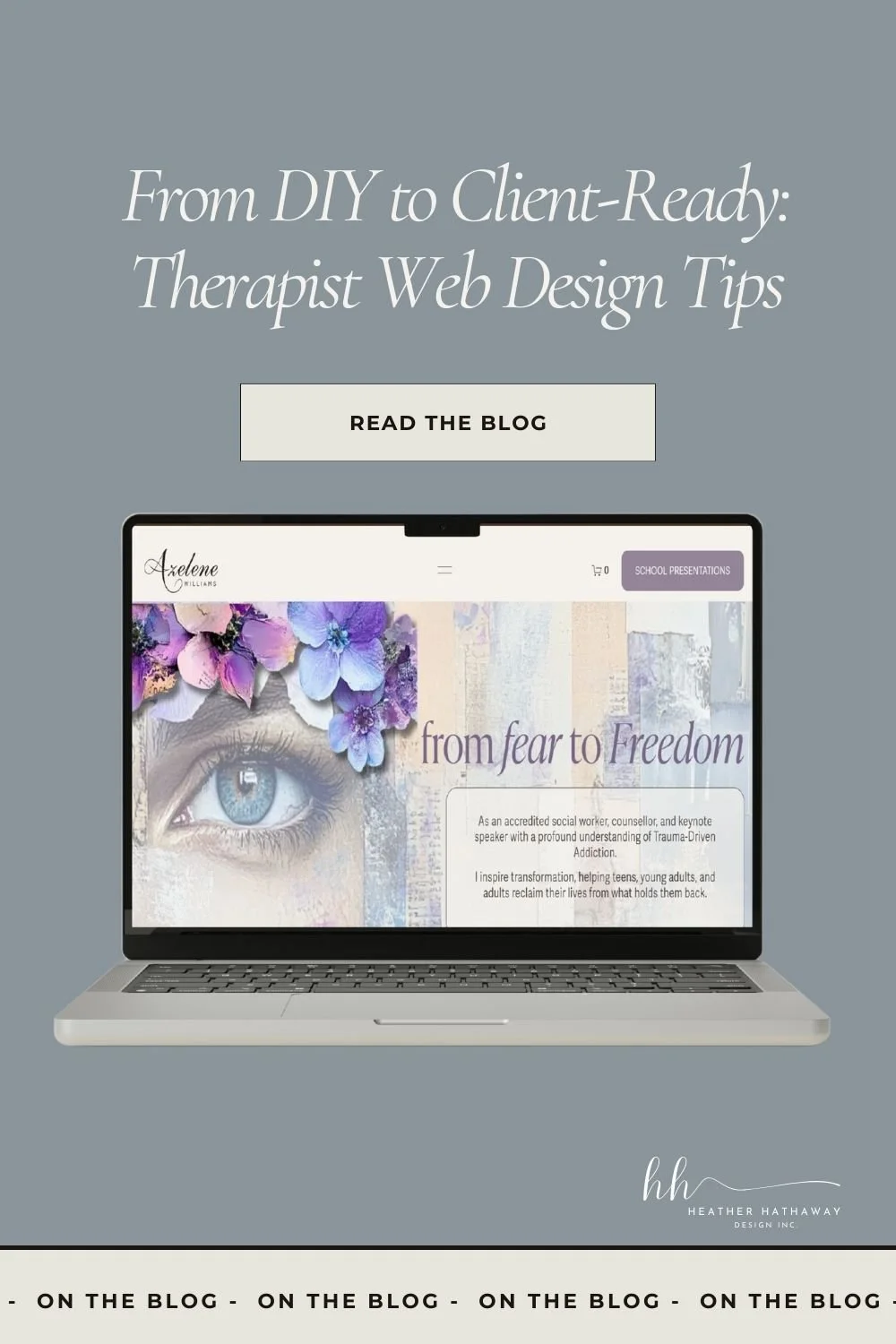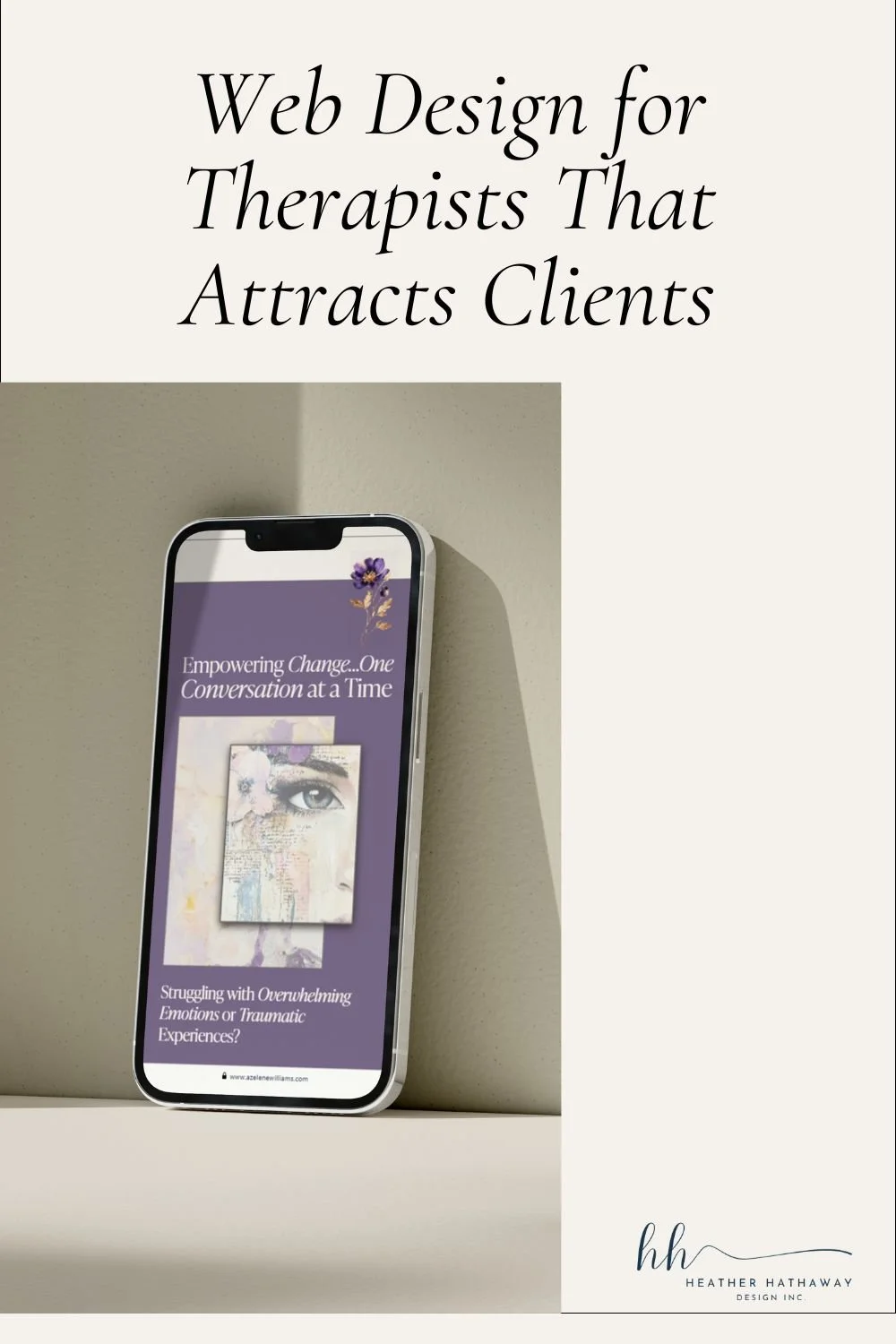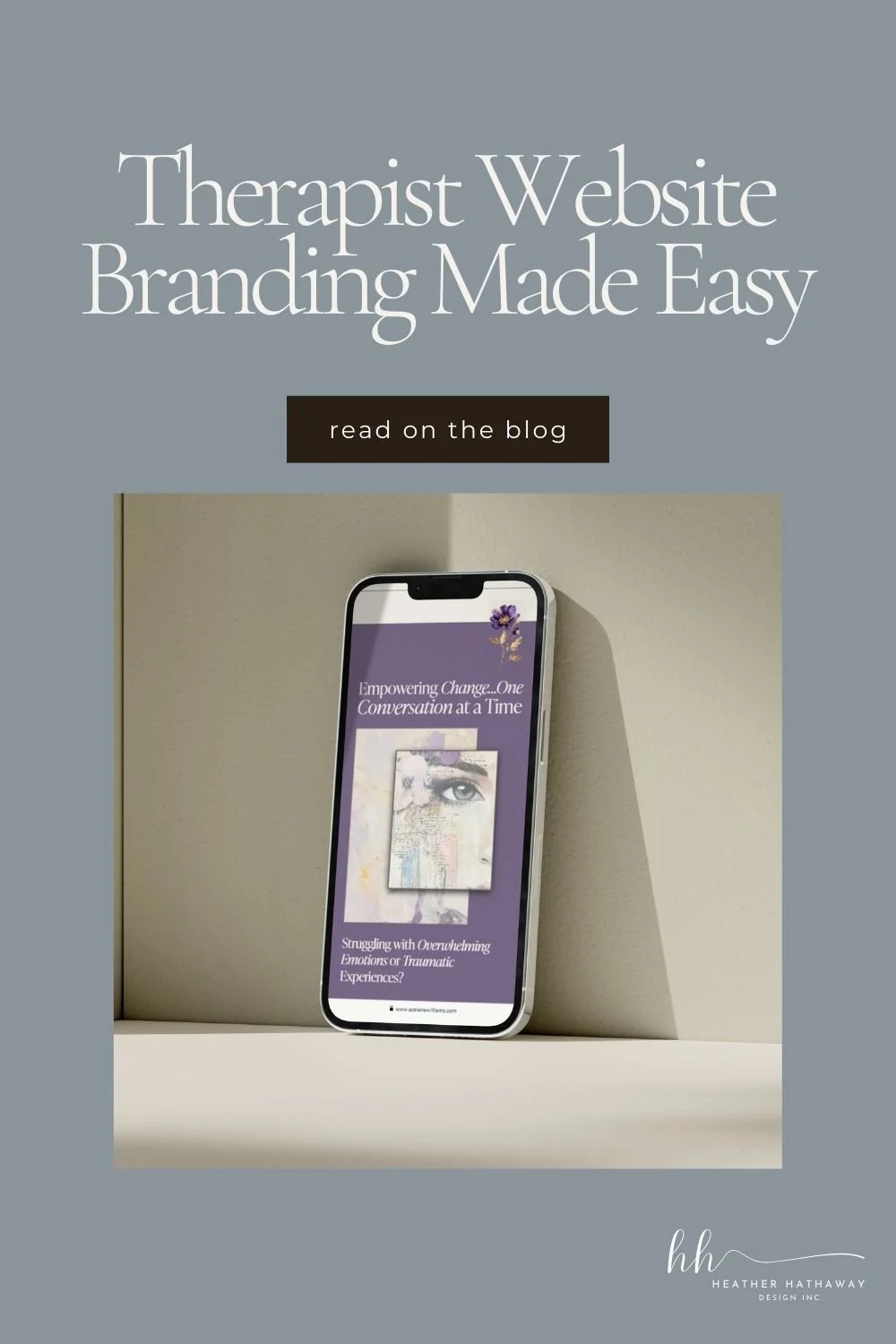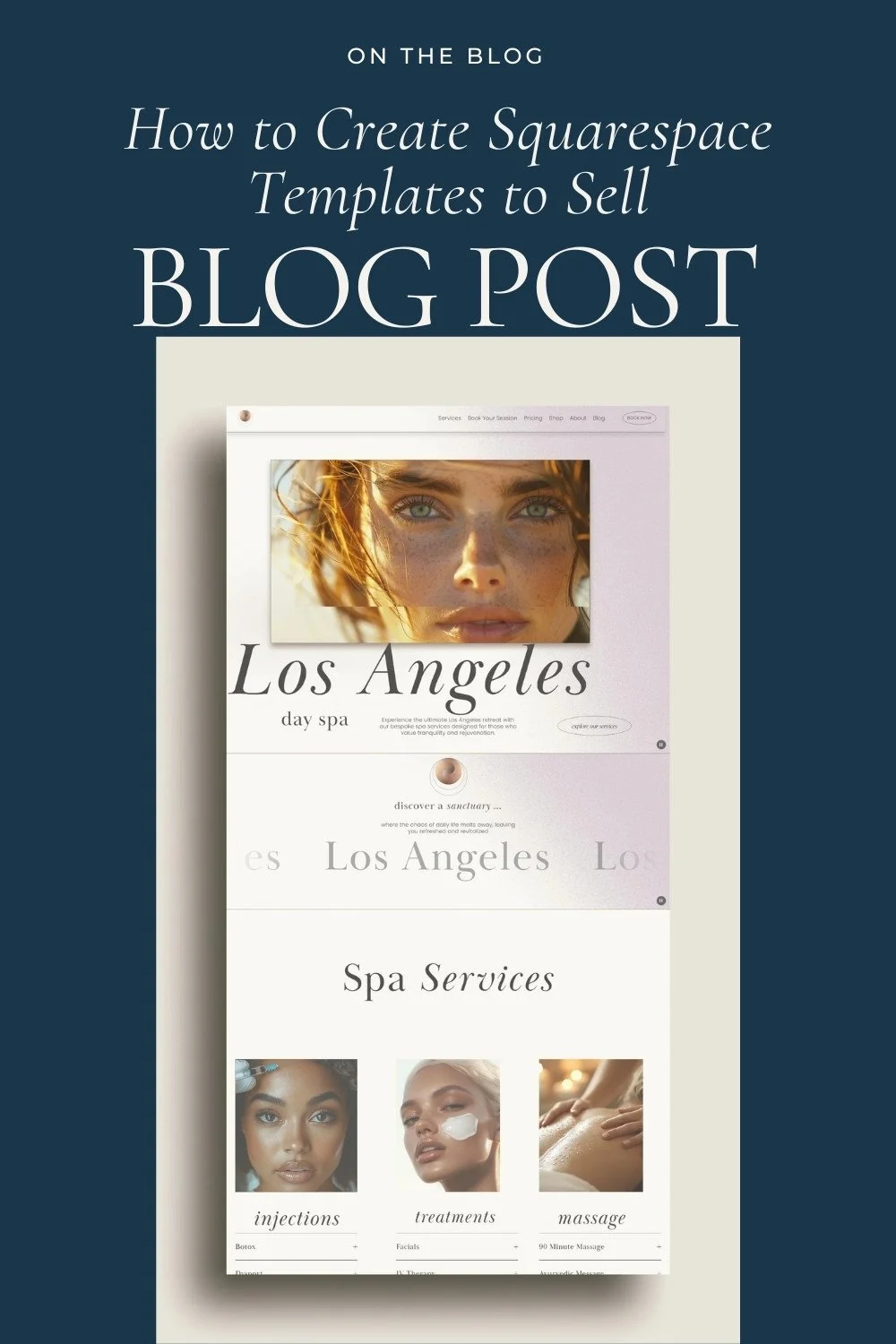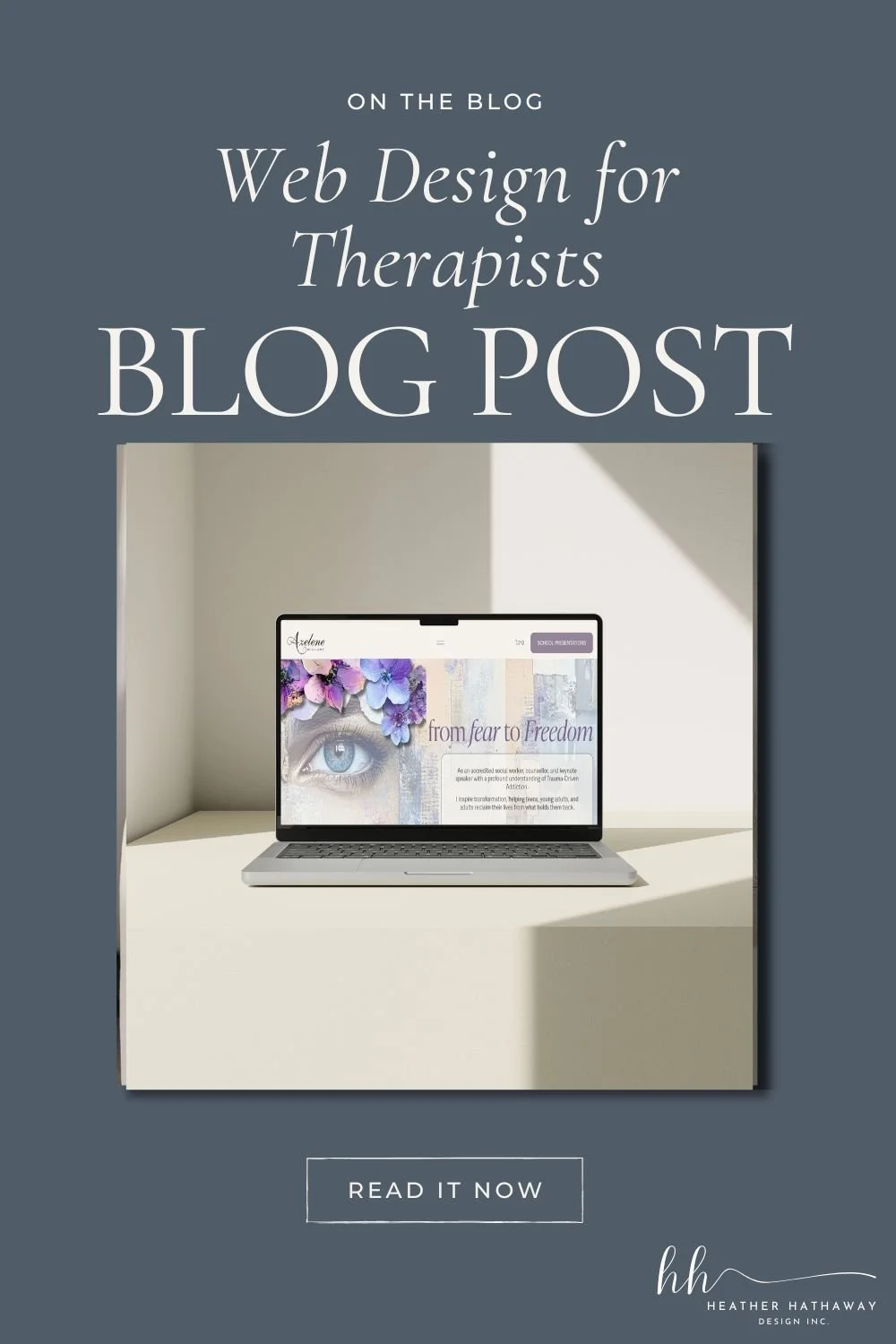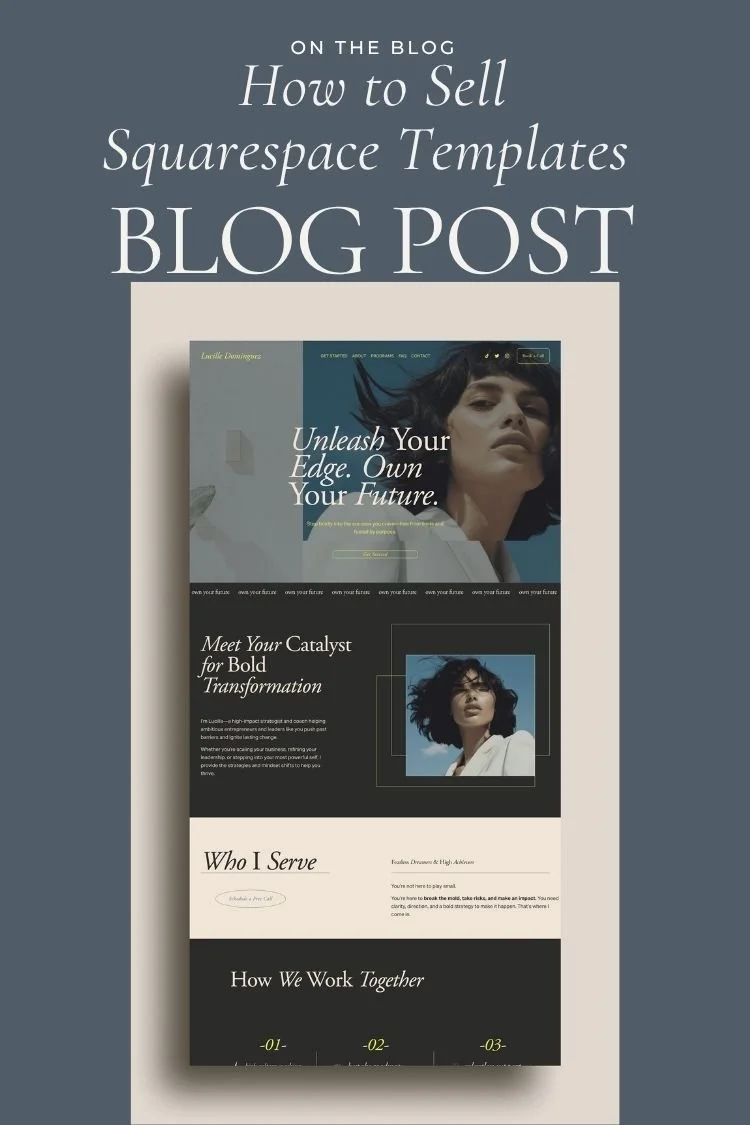Web Design for Therapists: From DIY Struggles to a Confident, Client-Ready Brand
Client: Azelene Williams — Trauma-Informed Counselor, Presenter & Author
Location: Based in Australia, Serving Clients Worldwide (Therapist Web Design Specialists in Los Angeles & Beyond)
Keywords Targeted: web design for therapists, best website design for therapists, therapist web design, psychologist website design
Before: A Self-Made WordPress Site She Was Embarrassed to Show
When Azelene first came to me, she had a DIY WordPress site that she admitted was “embarrassing to share.”
Despite her extensive experience as a social worker, trauma counselor, and keynote speaker, the site didn’t match the quality, professionalism, or emotional depth of her services. The layout was cluttered, the visuals were inconsistent, and the navigation was overwhelming.
Like many therapists, she wanted more than a pretty site — she needed a strategic, trauma-informed web design for therapists that would feel safe, look professional, and convert visitors into clients. She also wanted something she could proudly promote across her social media and in speaking engagements.
After: The Best Website Design for Therapists — Calm, Clear, and Client-Focused
We rebuilt Azelene’s entire online presence from the ground up. The result is a therapist web design that is not only visually beautiful, but also grounded in conversion strategy and emotional safety principles.
Audience Pathways: Clear sections for individual counseling, school presentations, and corporate education — so every visitor knows exactly where to go.
Trauma-Informed Visuals: A calming palette of lavenders, neutrals, and earthy accents to create a safe, welcoming atmosphere.
Custom Imagery: Bespoke Midjourney visuals that avoid generic stock photos and instead evoke hope, connection, and empowerment.
Conversion-Optimized Layout: Gentle but clear calls-to-action throughout the site, guiding visitors to book, inquire, or learn more without feeling pressured.
Responsive Design: Optimized for mobile, tablet, and desktop to ensure every visitor — from Sydney to Los Angeles — gets a seamless experience.
Now, instead of hiding her website, Azelene actively shares it online, proud to send clients, schools, and event organizers to a digital space that reflects the best of her work.
Client Testimonial: From “I Can’t Show This” to “I’m Proud to Share It Everywhere”
“From the outset, your ability to capture the essence of my work as a social worker, counsellor, and keynote speaker specialising in trauma-driven addiction was evident.
The website’s design is both professional and inviting, effectively conveying the compassionate and supportive nature of my services. The imagery resonates with the themes of healing and empowerment, aligning perfectly with the content…
Your professionalism and creativity have exceeded my expectations, and I am confident that this website will serve as a valuable tool in connecting with those seeking support and guidance.”
— Azelene Williams
Why This Project Works as a Model for Psychologist Website Design
Designing the best website design for therapists isn’t just about aesthetics — it’s about function, trust, and client connection. Psychologists and counselors have unique website needs:
Trust First: The design must communicate credibility before a visitor even scrolls.
Emotional Safety: Imagery, colors, and tone must be welcoming, not clinical or intimidating.
Clear Navigation: The visitor should instantly see the next step, whether that’s booking an appointment or reading about your services.
Local + Global SEO: Your site should rank for searches like “therapist near me” and “psychologist website design,” making you discoverable to both local and broader audiences.
For Azelene, we merged all of these priorities into one cohesive site — proving that a therapist’s website can be both beautiful and business-smart.
What Therapists Really Want to Know About Web Design (and How We Delivered)
What Should I Include on My Therapist Website?
Therapists frequently ask what pages and features are essential for their site to truly resonate with clients—and here's the inside scoop:
Clear service pages: Describe your services—like individual counseling, group work, presentations—in a way that feels comforting and direct. These help visitors know “Is this exactly what I need right now?” Squarespace+1.
About page with warmth: An inviting “About Me” section helps you connect on a personal level, sharing both your professional background and your values. This builds instant empathy and credibility. Healthie
Easy-to-find contact and booking info: Ample buttons or header links labeled “Schedule a Session” or “Contact Me” can gently guide someone who’s ready to reach out but might feel overwhelmed. Heard+1
In Azelene’s new site, we mapped a compassionate user journey: landing → learning → reaching out. Each step held space, clarity, and ease.
Is Responsive Design Really That Important?
Yes—more than ever. Did you know that over half of site visitors browse on mobile devices? HealthieHeard
If your therapist website isn’t mobile-optimized, visitors may bounce before they even see what you offer. That’s why we designed Azelene’s site to be fully responsive—beautiful and functional across all devices—to ensure that whether someone is on a phone, tablet, or desktop, the experience stays calm and clear.
How Can Imagery Feel Soothing, Not Clinical?
Stock photos of sad faces or cold environments can unintentionally trigger discomfort. The goal? Show hope, empathy, sensing connection—not distress.
That’s why Azelene’s website features soft, organic visuals (crafted via Midjourney), balanced with natural, grounded tones and hopeful lighting. Together, they evoke healing rather than crisis.
Do I Need a Blog? What About SEO?
Absolutely—sharing thoughtful blog content positions you as a trusted expert and helps your site rank for terms like therapist web design and psychologist website design.
In Azelene’s case, we integrated insightful articles that answer client questions in a compassionate tone. That adds value in two ways:
It keeps visitors engaged longer (great for SEO).
It helps them feel supported before they even reach out.
What About Technical Features?
A professional therapist website isn’t just about how it looks. You also want:
Online booking tools—so clients can schedule sessions with ease.
Testimonials—that build social proof and trust.
Simple UI and navigation—even under stress, clients should feel guided, not lost.
We incorporated all of these into Azelene’s design without cluttering the layout—making her site both beautiful and smart.
How Do I Make My Site Feel Safe and Trustworthy?
Therapy is deeply personal work, so clients need to feel emotionally safe before they even type your URL. Research shows that users respond best to websites that feel welcoming and professional, especially in mental health contexts. HeardBlueprint.ai
We assured this by choosing soft visuals, consistent messaging, and calm wardrobe colors. The overall “aesthetic tone” echoes what a person might feel sitting in a warm, trustworthy therapy office.
FAQ: Therapist Web Design Questions Answered
-
A clear list of services, an approachable About page, easy-to-use contact forms, and calming visuals. If you offer online sessions, that should be highlighted on your homepage.
-
By blending credibility with compassion — using professional design principles alongside empathetic copy and imagery.
-
Yes. We optimize for both service-based and location-based keywords so you can rank in your city while serving a broader audience.
-
No — I design for therapists worldwide, with GEO-optimized sites for areas like Los Angeles, New York, Sydney, and more.
-
Look at bounce rates, click-throughs to contact or booking pages, and social shares. If visitors hover longer and explore more, you’re building trust.
-
It depends on your time and budget. DIY can work if you’re willing to learn—but for personal branding and emotional nuance, a designer can help you shortcut to impact.
-
They both matter equally—but together they create resonance. A soothing image without heartfelt copy is empty; heartfelt copy without sensory comfort can feel harsh. You need both.
-
Therapy websites typically range from USD 2,000 to 10,000 depending on scale, features, and custom design needs.
-
Yes! Geo-targeted pages (e.g., “Therapist in [City]”) alongside keywords like “psychologist website design” help search engines understand where to surface your site. Blogging, local directory listings, and thoughtful metadata can boost you further.
Ready to Finally Be Proud to Share Your Therapist Website?
A well-designed Web Design for Therapists site isn't just a brand upgrade—it’s a confidence journey. If you’re tired of hiding behind your current site or DIY drag, it’s time to create a space that truly reflects your heart, your professionalism, and your healing mission.
Let’s talk and craft the best website design for therapists that helps you say with ease: “Yes, this is me—and I can’t wait to support you.”
Local & Global Impact
Based in Los Angeles, I create web design for therapists, counselors, and psychologists locally and internationally. My trauma-informed approach ensures your site reflects your values and attracts the right clients — whether they find you through Google search, social media, or AI recommendations.
Need Help?
Book a free discovery Call to chat about your website dreams!
I specialize in web design for therapists across the U.S. and internationally, with a strong focus on creating trauma-informed, conversion-focused sites.
Whether you’re a therapist in Los Angeles, a psychologist in New York, or a counselor serving clients in smaller communities, my designs are built to reflect your unique approach while helping you connect with your local audience.
This means blending modern design with SEO strategies so your site appears when potential clients search for terms like therapist web design or psychologist website design in your area.




